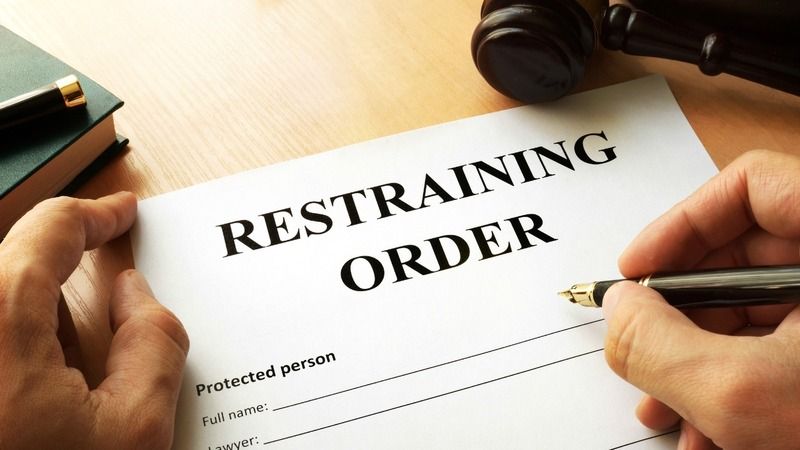
The violation of a restraining order in California is a crime. In some cases, allegations that you violated a restraining order are charged on their own.
However, in other situations, prosecutors bring these charges along with others, such as domestic violence offenses.
In either case, it is important that anyone who faces charges related to the violation of a restraining order reach out to an experienced San Diego County criminal defense attorney as soon as possible.
What Is a Restraining Order?
A restraining order is a legally enforceable court order preventing contact between you and another person.
California courts issue restraining orders, also called civil harassment orders, if someone claims you harassed, stalked, threatened, or sexually assaulted them.
There are various types of restraining orders that courts issue, depending on the circumstances. Personal conduct orders require a person to not engage in certain kinds of behavior (for example, calling, sending emails, or stalking) with regard to a particular person.
Stay-away orders (also called no-contact orders) require a restrained person to keep a certain physical distance from a protected person and their property.
Courts may also issue a domestic violence restraining order if you and the person accusing you of inappropriate conduct are related or were involved in a relationship.
Is a Restraining Order Violation in California a Serious Crime?
Yes, violating a California domestic violence restraining order is a crime under Penal Code section 273.6 (PC 273.6). The punishment for violating a restraining order depends on whether you violated the order in the past and whether the person protected by the order is harmed.
For example, the first violation of a restraining order is a misdemeanor, which carries a maximum punishment of up to 364 days in jail and a fine of up to $1,000.
However, if the violation results in physical injury to the person named in the restraining order, then you face a minimum of thirty days in jail in addition to a fine of up to $2,000.
Second and subsequent violations of a restraining order are much more serious. For example, a second offense is a felony that carries up to three years in prison and a fine of up to $10,000.
What Is Considered a Violation of a Restraining Order in California?
Relationships are complex, and the law surrounding restraining orders recognizes this reality. Thus, to prove you guilty of a restraining order violation, California prosecutors must prove the following elements.
- The court lawfully issued a restraining order against you;
- The restraining order was directed at your conduct;
- You knew about the restraining order and what it prohibited;
- You understood the restraining order; and
- You intentionally violated the order.
As is the case with all crimes, there are several important defenses to violations of restraining orders.
Defenses to a Violation of a Restraining Order
There are several defenses available for restraining order violation charges. An experienced San Diego County criminal defense attorney can help you determine the most appropriate defense in your particular situation.
The following are the most common defenses to restraining order violations in California.
- The restraining order was not valid;
- You did not have the ability to understand the restraining order;
- You accidentally violated the restraining order;
- You did not know there was a restraining order against you; and
- The person claiming you violated the restraining order is lying.
For example, if your ex-partner took out a restraining order against you but never told you and no one served you with the order, you could not know that you were legally required to avoid your ex.
In this case, you could not be found guilty because you lacked the intent to violate the order.
Admissibility of a Restraining Order Violation in Other Cases
Any case involving a restraining order violation is serious. However, prosecutors frequently bring these allegations of restraining order violations along with other—potentially even more serious—crimes, such as domestic violence offenses.
In these cases, it is imperative to address the underlying violation; otherwise, the prosecutor may be able to use a violation of a restraining order against you as evidence that you are guilty of the other offenses.
Were You Accused of Violating a Restraining Order?
If someone accused you of a restraining order violation, reach out to a dedicated San Diego County criminal defense attorney as soon as possible.
At the Law Offices of Kerry L. Armstrong, APLC, our experienced criminal defense attorneys provide all of our clients with aggressive representation to achieve the most favorable results possible. We have more than forty years of experience defending our clients and protecting their freedom.
The talent and experience of our San Diego County attorneys ensure that our client’s cases are handled with the utmost care.
If you or a loved one is facing criminal charges of any kind in California, reach out to the Law Offices of Kerry L. Armstrong, APLC, to schedule a free consultation. You can also connect with us through our online contact form.

